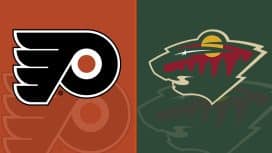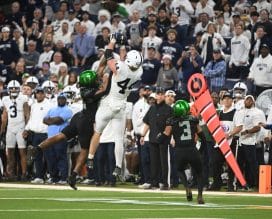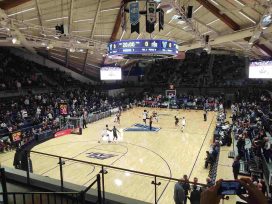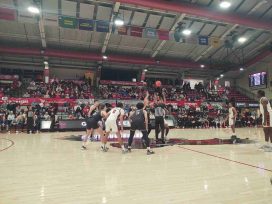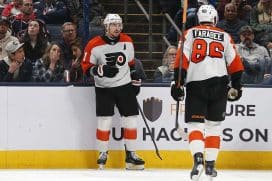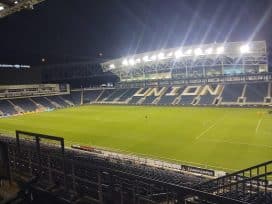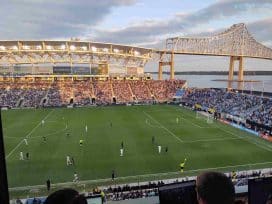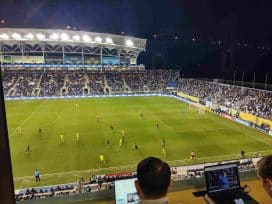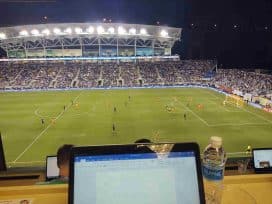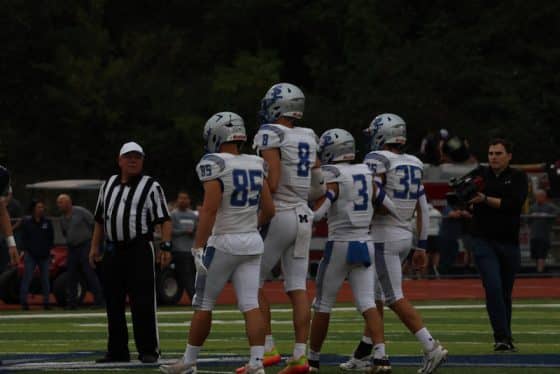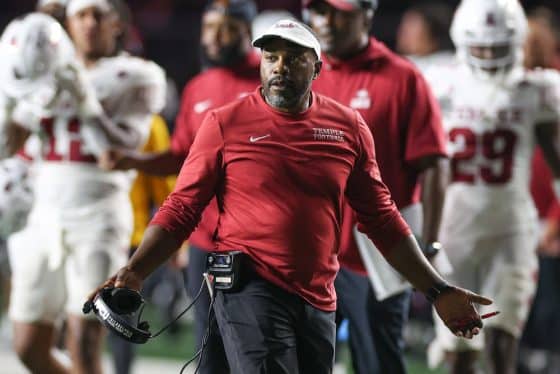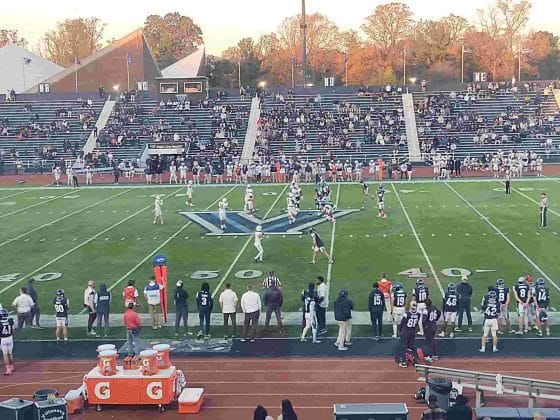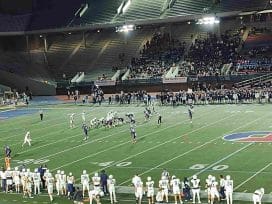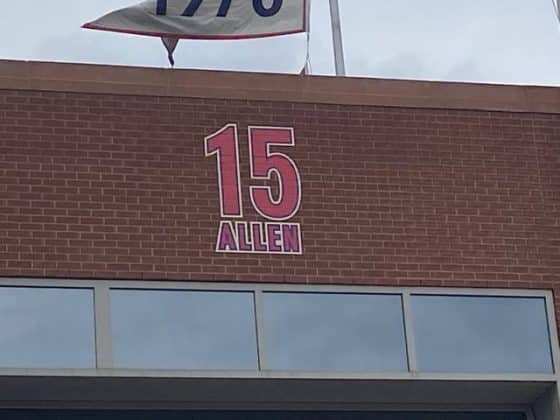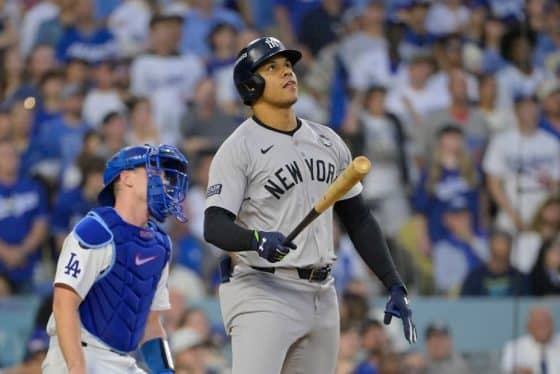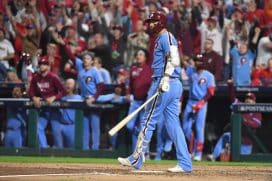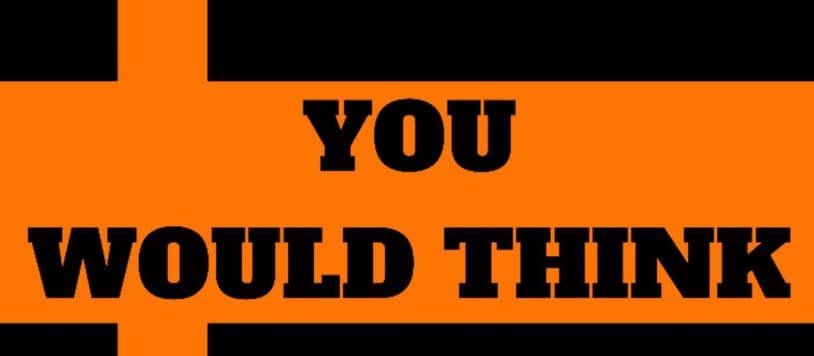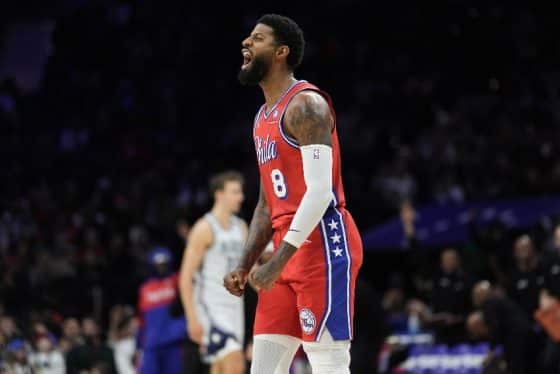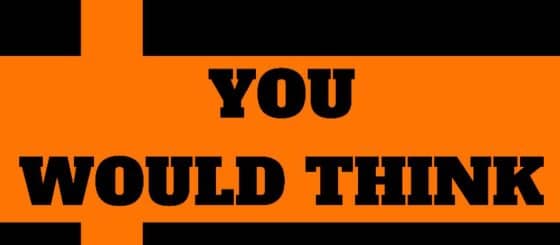Flyers
A Flyers Season of Great Progress Meets a Future of Uncertainty
By Kevin Durso, Sports Talk Philly editor
The Flyers season ended on Saturday night in Game 7 against the Islanders.
That sentence brings about disappointment. It brings sadness. It brings a wonder of what might have been, maybe back in February and March when this team was on a roll, maybe in late July and early August when everything looked promising in the Round Robin.
That is all gone now. The 2019-20 season is over. The Flyers are not going to reach the promised land this year.
In most circumstances, the feeling of disappointment and sadness would linger for a few days. It hurt watching Game 7 play out – a 4-0 loss to an Islanders team that was simply better – it still hurt this morning and it will hurt tomorrow and this week as the conference finals begin without the Flyers there. But there was a growing sense of whether or not the season was a success, especially as Game 7 played out.
For a lot of people, there was this ultimately feeling of despair, a sense that things are not looking up for this team. That is just dead wrong. But why do people feel that way? Why do people feel like this wasn’t a success? Why do people feel like this team still has the exact same problems just over a year removed from making changes at GM and head coach?
The answer is relatively simple.
Yes, this is primarily the same cast of characters we talk about every year. Claude Giroux. Jake Voracek. Sean Couturier. James van Riemsdyk. These guys have been here before. They have failed before. They have been held responsible for it before. And their lack of success at times in the playoffs this year was really nothing new. But to say this team hasn’t taken strides, to look at their young players and think this team isn’t going in the right direction is flat-out wrong.
The Flyers have a stud like 23-year-old Ivan Provorov on the blue line, saw overall growth of a pairing with 23-year-old Phil Myers and 24-year-old Travis Sanheim, had forwards like 23-year-old Travis Konecny, 24-year-old Oskar Lindblom, 20-year-old Joel Farabee get key playoff experience and have the possibility of seeing 21-year-old Morgan Frost and soon-to-be 22-year-old Nolan Patrick as part of the lineup. And of course, how could anyone forget the progress of 22-year-old Carter Hart in goal?
That’s the goaltender, three defensemen and five potential forwards all at age 24 and under. Half of this team’s regular lineup next season could be just starting their careers. Then you add in veterans like Giroux and Voracek and Couturier and van Riemsdyk and Kevin Hayes. Then you add in Matt Niskanen. Then you add in Brian Elliott or a similar veteran-type to be Hart’s backup.
This team made noise this season. Out of the doldrums of irrelevance, they had GM Chuck Fletcher in his first full season with the team, a brand new head coach in Alain Vigenault and a lot of fresh faces. The team that had struggled so much to make the playoffs made it comfortably this year. The team that hadn’t won a playoff series in eight years finally did just that. And with strong will and determination, they pushed the New York Islanders to the brink and emptied the tanks in a seven-game series that came up one win short. That’s progress.
But there’s a funny thing about this progress. There’s a different feeling about the end of this season. The Flyers were on a roll in March when suddenly, the world shut down. There was no more hockey. No more sports. No going out to dinner. No going to the movies. No hanging out in crowds at sporting events or concerts or picnics or reunions or any of that. The entire world stopped and we had a new opponent in front of us. COVID-19. A pandemic that shook up everything.
This is what is so hard about this Flyers loss. It’s not that it’s the end of the season. This happens for 15 other teams in the playoffs without a reward. Only one team comes away with the Stanley Cup. What’s so hard is having to once again hear “there’s always next year,”… and not knowing when next year really is.
See, the NHL did their part and stepped up with an agenda. They were far enough along in the regular season to find a way to incorporate all of the teams that should have been there. They sent 12 teams to Toronto for the Eastern Conference playoffs. They sent 12 teams to Edmonton for the Western Conference playoffs.
And for the last four or five weeks, things have felt normal. There have been games every day. There has been hockey. There has been Flyers hockey.
That has been the focus for the NHL: find a way to award the Stanley Cup for the 2019-20 season. They will find a way to do that in the coming weeks. But the Flyers won’t be part of it. Not anymore. And that’s what hurts about this run.
The Flyers have a bright future. We saw a lot of it in these playoffs. But when will we see it again? When will the 2020-21 season be next discussed? When will we have a plan for that to happen? Will it happen in the home cities of the teams playing? Will fans even be allowed to attend?
There is a crossroads here for the Flyers. They have a bright future ahead of them and a lot of the players on this team will be back again next year. But this happens to be where that great progress for so many of the young budding players on this roster meets a future of uncertainty.
It seems ridiculous to say the Flyers have an uncertain future. They have a lot of the pieces in place to be a successful team in the playoffs. They were one win away from being one of the NHL’s final four teams. They were one of the final eight this season, one year after an unceremonious end to the season with the rest of the non-playoff teams. The 2019-20 season was a massive step in the right direction, a reason to get excited about this team again, a reason to pay attention to this team again, a reason to support this team again.
But in the playoffs, it felt like the same old, same old, and with no start date for the next NHL season in sight, well, it begins the longest offseason the Flyers and their fans have ever had.
